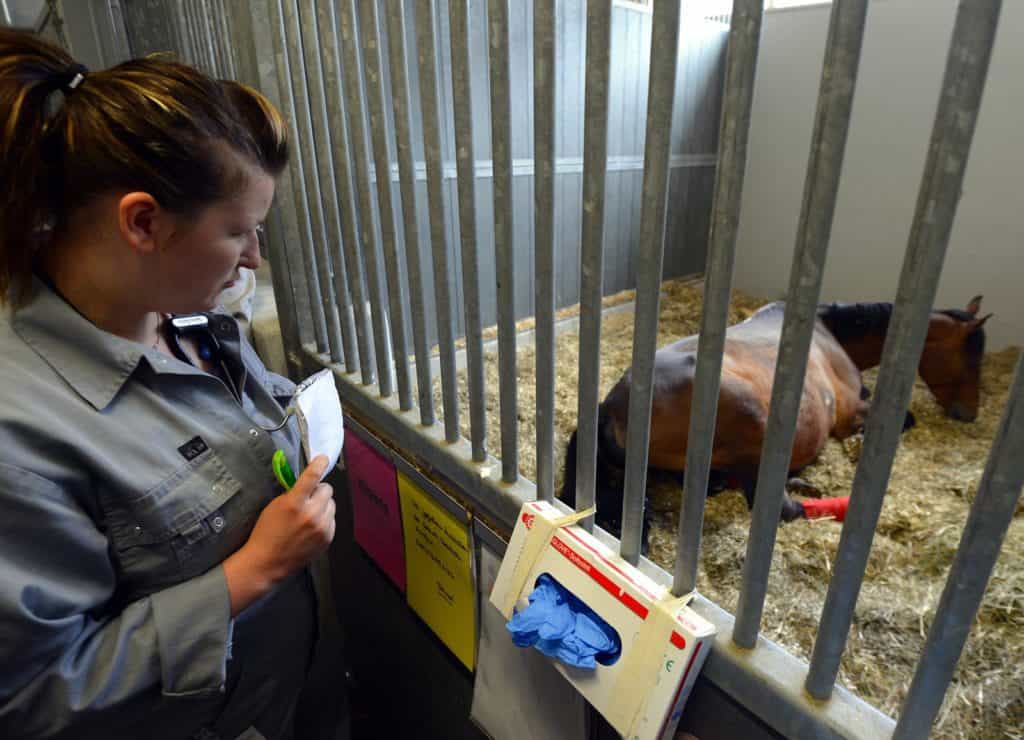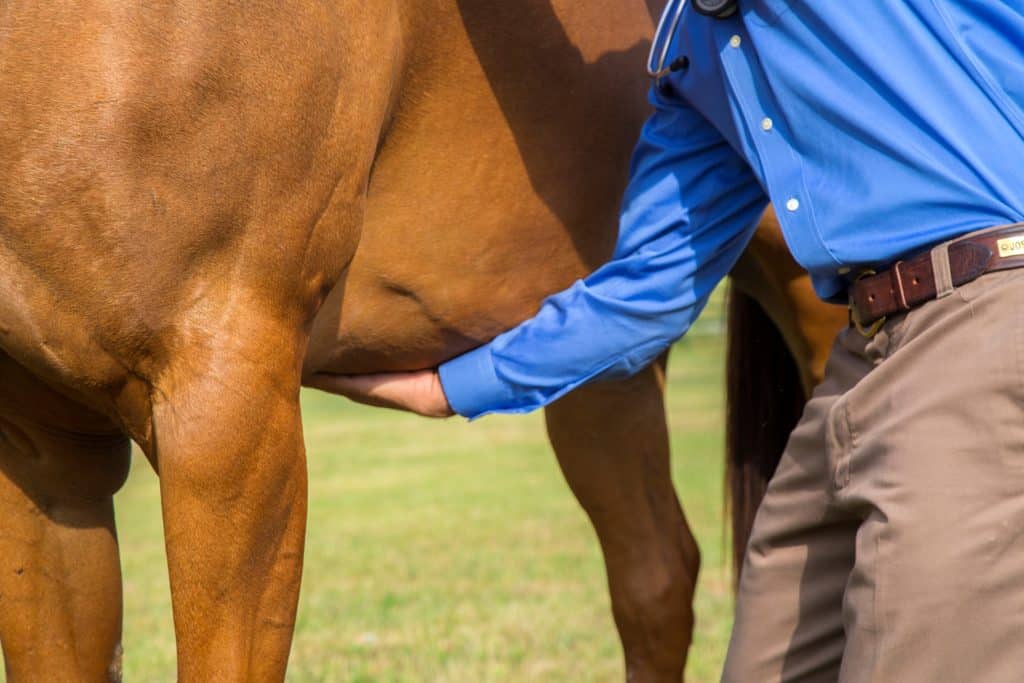
Getting to Know EOTRH
This painful dental disease is often seen in older horses and can have severe consequences. Here’s what to watch for.

This painful dental disease is often seen in older horses and can have severe consequences. Here’s what to watch for.

Pregnancy failure in mares is a very real risk; here’s how to prevent or handle it.

Of the 664 respondents, 387 (58%) said they keep hard copies of their horses’ records in a folder.

Infections can be reduced by recognizing the risk and having appropriate cleaning, disinfection, and hygiene protocols.

Similar to the Centers for Disease Control and Prevention for human diseases, the EDCC will serve as the official source of information about equine infectious diseases and provide real-time alerts when disease outbreaks such as the neurologic form of herpesvirus infection occur.

Of the 690 respondents, 378 (55%) said they communicate most with their horse’s veterinarian by phone.

Vets can evaluate a horse’s active and passive response during a flex test. Dr. Rachel Buchholz explains.

A necropsy is not something most horse owners contemplate until faced with the death of a horse.

Consider these nine qualities when choosing an equine veterinarian.

An equine disease outbreak can be dangerous for your horse and expensive for you. Protect your horse from infectious disease exposure by using tips from our step-by-step visual guide.

Drug screening can offer additional information pertaining to the horse’s ability to fit a buyer’s needs.

All owners should know their horses’ normal vital signs and how to take them correctly. Here’s a review.

When it comes to diagnosing a horse’s lameness, the veterinarian’s eyes are no longer the ultimate diagnostic machine. Learn about scientific advancements that are helping veterinarians better assess lameness in horses.

Horses don’t pass or fail prepurchase exams. Instead, the exam is intended to give you a snapshot of the horse’s overall health and provide information so you can make a sound buying decision about whether the horse is suitable for your needs.

Blood testing can provide important information, but it almost always needs to be interpreted relative to the clinical examination findings, history, and additional testing in order to arrive at an accurate diagnosis of the problem.

Excessive tearing could suggest a number of potentially serious equine eye conditions. Veterinarians should examine cases carefully and then determine an appropriate treatment course.
Stay on top of the most recent Horse Health news with
"*" indicates required fields